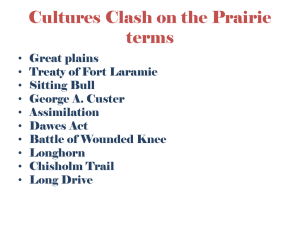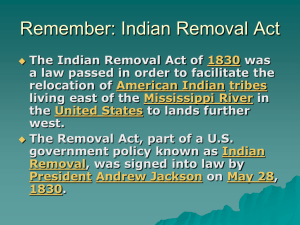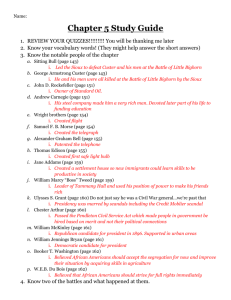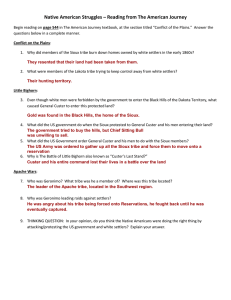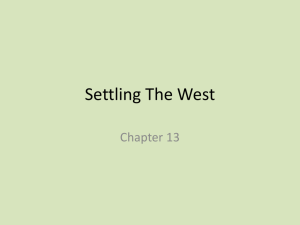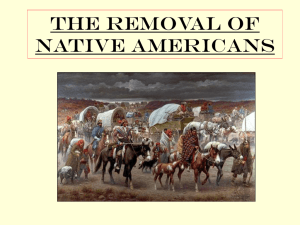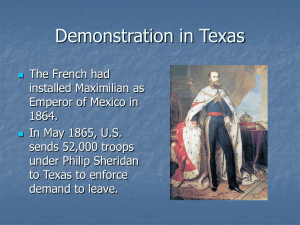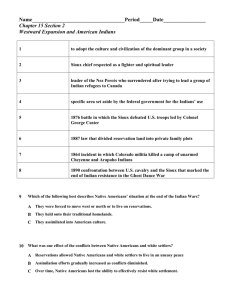Native Americans Fight to Survive
advertisement
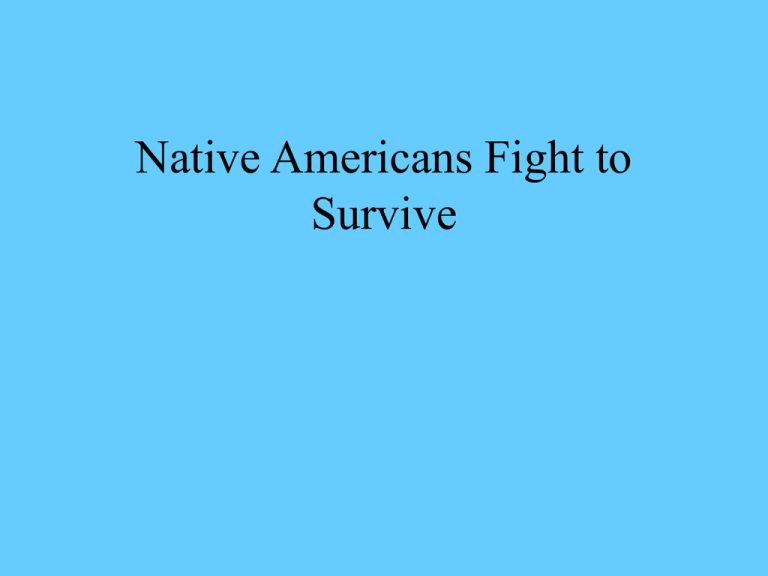
Native Americans Fight to Survive Describe Native American life on the Great Plains. • Lived in villages by streams • Women tended crops men hunted • Horses allowed hunters to follow the buffalo herds • Used the buffalo for food, clothing, and shelter • Horses allowed tribes to be nomadic Explain how Plains tribes responded to white settlers attempts to take away their land. • • • • • • They were given the Indian Territory west of the Mississippi River -“as long as the grass grows and the water runs” Settlers wanted to move onto the Great Plains to farm so gov’t tried to buy back land and redraw boundaries Many agreed, but Cheyenne and Sioux didn’t and attacked white settlers Soldiers responded with Sand Creek Massacre Fetterman Massacre US gov’t agreed to give Sioux land in Black Hills of South Dakota Identify the outcome of Native American resistance efforts. • • • • • Gold found in Black Hills Battle of the Little Big Horn 2,500 Sioux and Cheyenne vs. 211 US soldiers - Sitting Bull and Crazy Horse vs. Col. George A. Custer Sitting Bull and his starving followers eventually had to surrender Nez Perce led by Chief Joseph surrendered after a 4 month chase towards Canada -“I will fight no more, forever” Apaches led by Geronimo were the last band of resistance fighters Sitting Bull • Sioux Chief George A. Custer • U. S. Calvary officer Chief Joseph • Nez Perce Chief Geronimo • Apache Chief Evaluate the impact of the Dawes Act on the Plains tribes. • People want Native Americans to assimilate • Wanted them to become farmers • The law divided up the reservation land for individual families and sold the rest to settlers • Those who wanted to farm lacked the training, money, and tools to be successful, so they ended up selling their land
